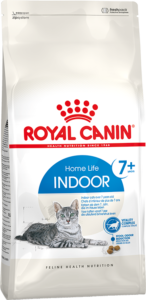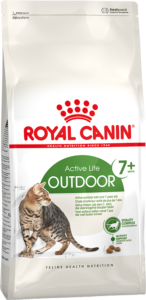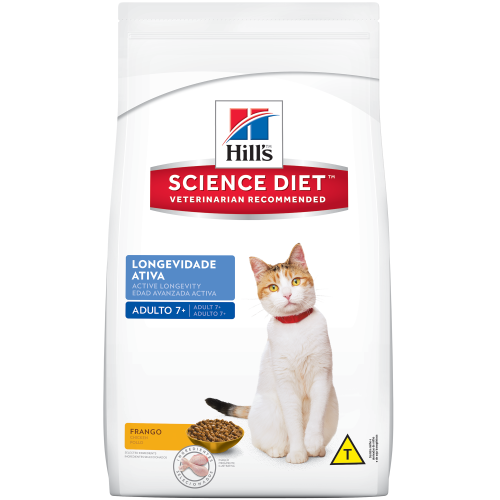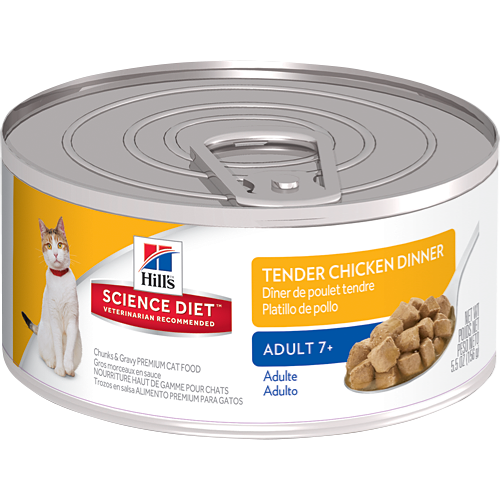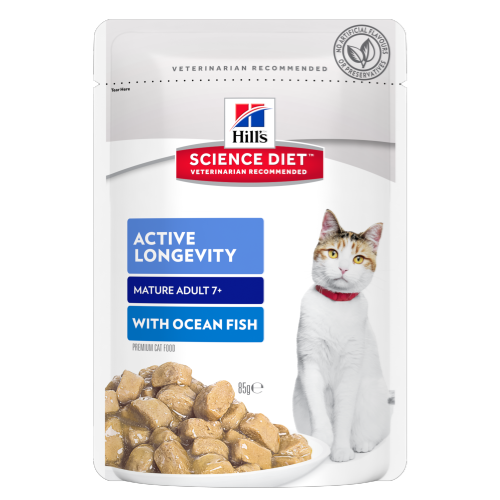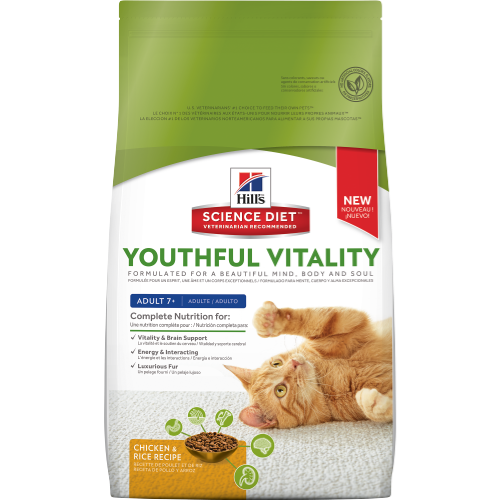Cats today are living longer than ever before – sometimes up to 25 years. As cats get older, some commonly seen ailments may occur such as decreased immunity, lower nutrient absorption ability, decrease in appetite and dental disease which may result in difficulty chewing their food. With these changes in mind, it’s important to choose a highly palatable, nutrient-rich formula with a softer texture for easy chewing.
The percentage of cats over 6 years of age has nearly doubled in just over a decade. As nutrition and medicine continue to advance, our mature cat population will grow.
Many cats begin to show physical signs of aging between 7 and 10 years of age, and most do so by the time they are 12. Aging often means decreased energy, difficulty walking and loss of appetite. Older cats have a greater chance of developing various illnesses, including heart problems (ventricular hypertrophy), respiratory difficulties, susceptibility to infection due to a weakened immune system, kidney disease, tumors and endocrine disorders such as hyperthyroidism or diabetes. Obesity is also a risk factor in a large number of diseases, such as diabetes and skin problems. But older cats may also become underweight and lose lean muscle mass.
Consequently it’s important to adjust your older cat’s diet, starting at age 10. Even if you’re not seeing physical changes in your cat, there may be metabolic changes that can be addressed with mature-based nutrition.
Elderly cats should also be monitored by a veterinarian so that any illness can be treated as soon as possible. One veterinary examination a year is recommended throughout a cat’s life, with one every six months strongly advised for cats over 12 years old.
Visit our Product Finder to find the right diet for your mature cat.
